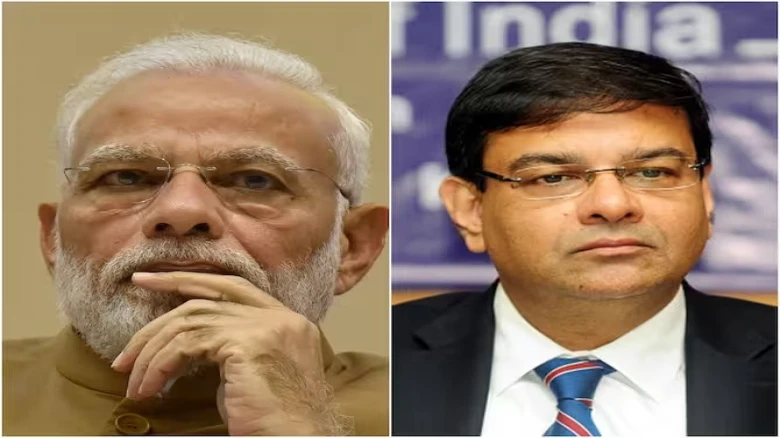Regional

In December 2018, Urjit Patel handed in his resignation as the Reserve Bank of India's (RBI) 24th Governor.
Digital Desk: Bhartiya Janata Party (BJP) leader and Indian Prime Minister Narendra Modi referred to former Reserve Bank of India Governor Urjit Patel as a "snake who sits over a hoard of money", former Finance Secretary Subhash Chandra Garg has written in his book We Also Make Policy.
In December 2018, Urjit Patel handed in his resignation as the Reserve Bank of India's (RBI) 24th Governor. Although he stated "personal reasons," his resignation came amid news that the conflict between the RBI and the government was spreading. It was an unusual occurrence for a governor to resign halfway through a three-year term.
Having authority over nationalised banks
The revelations coincide with the known conflict between Patel and the PM Modi administration, which finally resulted in Patel's resignation in 2018. In Garg's book, he detailed how the Modi administration's "frustration" with Patel had grown as early as February 2018 and intensified a month later when he accused the administration of its inability to shed regulatory authority over nationalised banks. According to him, this left the RBI with insufficient regulatory authority over public-sector banks in comparison to private-sector banks.
Friction between Modi and Urjit Patel on electoral bonds
Garg further claimed that Urjit Patel had attempted to derail the Electoral Bond Scheme under the Narendra Modi administration.
Garg claimed that Patel tried to accomplish this by arguing that only the RBI should be authorised to issue them, and even then only in digital form.
The then-RBI chief increased the repo rate to 6.25% in June of that year, blaming the government's decision to raise minimum support prices for the probable rise in inflationary pressures. He increased the repo rate by 25% three months later. As a result, the government came under increasing pressure to inject extra capital into banks totaling lakhs of crores.
Patel wanted to become the most independent RBI governor: Garg
According to Garg's book, during a meeting called by PM Modi on September 14, 2018, growing differences in economic policies between Urjit Patel—at the time the RBI governor—and later finance minister Arun Jaitley came to light.
Patel made a presentation in which he offered several remedies, such as eliminating the long-term capital gains tax, increasing the disinvestment targets, addressing international organisations and requesting that they invest in the government of India bonds, and paying off the outstanding debts of several enterprises.
According to Garg's book, Jaitley described Urjit Patel's suggestions as "totally impractical and generally undesirable" out of exasperation.
"Snake who sits over a hoard of money"
Urjit Patel vs. Arun Jaitley
According to Garg's book, the presentation made things worse between the Finance Ministry and the RBI. According to the former finance secretary, Patel's lines of communication with Jaitley and the acting finance minister had been broken down, and the only channels of communication were PK Mishra and the Prime Minister's Office (PMO).
PM Modi lost his cool on ex-RBI Guv Urjit Patel
Claiming that after carefully and patiently listening to Patel's speeches, Prime Minister Narendra Modi was "sick of the situation."
According to Garg's book, a furious PM Modi blasted Urjit Patel over the RBI's position on the resolution of non-performing assets and its "intransigent, impractical, and inflexible attitude to finding solutions."
The book further claims that in the middle of the fiscal year, the governor requested a further reduction in fiscal deficits while also proposing the removal of the Long-Term Capital Gains (LTCG) tax, which had subsequently stabilised and received little opposition. PM Modi criticised the governor for his actions.
Garg continued by saying that Urjit Patel was compared by the prime minister to the "snake that sits over a hoard of money" because he was reluctant to use the RBI's collected reserves in any way.
Leave A Comment